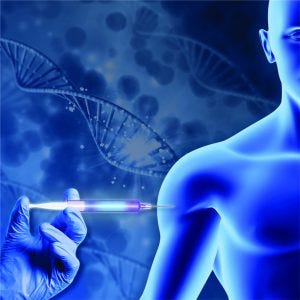- Sponsored Content
- Formulation
Ask the Expert: Ultrapure Gelatin Can Optimize Your Excipient Screening for Vaccine FormulationAsk the Expert: Ultrapure Gelatin Can Optimize Your Excipient Screening for Vaccine Formulation
September 22, 2020
Sponsored by Rousselot Biomedical
 In his 28 May 2020 “Ask the Expert” presentation, Jeroen Geeraerts (business development manager at Rousselot) highlighted that, as of May 2020, 118 candidate vaccines for the novel coronavirus (SARS-CoV-2) had reached clinical or preclinical evaluation. Of those, 11 use inactivated and live–attenuated approaches, which require strong stabilizing agents to maintain vaccine potency. Geeraerts explained why inactivated and live–attenuated vaccines require stabilizing agents and why vaccine companies prefer pharmaceutical-grade gelatin for such applications. Next, Geeraerts described how his company’s X-Pure highly purified gelatin excipients can preserve vaccine potency in a low-endotoxin format.
In his 28 May 2020 “Ask the Expert” presentation, Jeroen Geeraerts (business development manager at Rousselot) highlighted that, as of May 2020, 118 candidate vaccines for the novel coronavirus (SARS-CoV-2) had reached clinical or preclinical evaluation. Of those, 11 use inactivated and live–attenuated approaches, which require strong stabilizing agents to maintain vaccine potency. Geeraerts explained why inactivated and live–attenuated vaccines require stabilizing agents and why vaccine companies prefer pharmaceutical-grade gelatin for such applications. Next, Geeraerts described how his company’s X-Pure highly purified gelatin excipients can preserve vaccine potency in a low-endotoxin format.
Geeraerts’s Presentation
Geeraerts explained that subunit/recombinant and toxoid vaccines feature particles (microbial fragments and toxins, respectively) that remain stable without excipients. However, inactivated and live–attenuated vaccines need to deliver whole virus particles, which require support to remain intact. Thus, they need stabilizers to “wrap” the particles and preserve their potency through storage, transportation, and administration.
Which stabilizer to use depends on a vaccine’s composition and functional requirements. But finished vaccines often feature some combination of the five stabilizer classes: amino acids, antioxidants, proteins, sugars, and surfactants. Geeraerts observed that, historically, researchers determined which combinations to use through empirical means. Today, increased understanding of viral structures and immune-system regulation is helping vaccine developers determine a priori what excipients would be best and what storage conditions would optimize their vaccine formulations. Ultimately, though, stabilizers must be robust, readily available, easy to use, and safe, with minimal side effects.
Gelatin fulfills all those criteria. It is readily available, biodegradable, and biocompatible. It also has low allergenic potential. Gelatin consists of peptides and proteins produced by partial hydrolysis of collagen, and it is unique in its ability to stabilize large pathogens. After extensive study and application, regulators have added gelatin to the list of stabilizers that are “generally regarded as safe” (GRAS). These properties make gelatin systems versatile carriers, especially for combination products such as vaccines for measles, mumps, and rubella (MMR) and diphtheria, pertussis, and tetanus (Tdap).
Geeraerts added that gelatin is difficult to replace during freeze–drying processes. It also enables nasal administration of vaccines because it adsorbs easily into mucosal tissue without diminishing a product’s immunizing effects. Products such as the Fluenz Tetra (AstraZeneca) and FluMist (MedImmune) nasal influenza vaccines already have come to depend on gelatin excipients.
Building on the inherent advantages of pharmaceutical-grade gelatin, Rousselot’s X-Pure line comprises a wide range of low-endotoxin gelatins, including an industry-leading porcine (type A) gelatin system. X-Pure production begins with rigorous assessment of raw materials based on quality, purity, consistency, and traceability. Selected gelatin solutions undergo nonenzymatic hydrolysis, followed by a patented two-stage purification step and drying, all performed under cleanroom conditions in good manufacturing practice (GMP)–compliant facilities.
Geeraerts said that the two-step purification minimizes a gelatin solution’s pyrogenic potential and diminishes its endotoxin levels to ≤10 EU/g — the limit of detection for such impurities. The process also ensures batch-to-batch consistency and GMP-compliant batch-release conditions. Resulting products exhibit the highest purity levels of any commercially available hydrolyzed porcine-sourced gelatin system.
In addition to benefiting from strong biosafety profiles and superior performance in inactivated and live–attenuated vaccines, users of X-Pure products can leverage Rousselot’s 125 years of experience with gelatin and collagen product development. Customers can receive support from the company’s global network, which includes 11 production plants and quality control laboratories. Rousselot’s biomedical division is not only focused on parenteral formulations, but also working on regenerative-medicine applications such as wound care and tissue engineering.
Watch the full webcast and learn more about X-Pure ultrapure gelatins now.
You May Also Like





